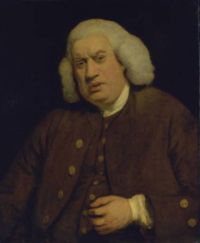 Francesco Petrarch is best known for The Canzoniere: 366 poems written to/for his beloved Laura. He also wrote many fine letters - such as The Ascent of Mont Ventoux - and moral essays. His Secretum is a masterful discourse between himself, St. Augustine and Lady Truth. It is a profound and rigorous examination of conscience. He is often referred to as the Father of Humanism and was an inspiration to countless poets, including Shakespeare. He was crowned with laurels in Rome for his tremendous literary achievements and is usually pictured thus.
Francesco Petrarch is best known for The Canzoniere: 366 poems written to/for his beloved Laura. He also wrote many fine letters - such as The Ascent of Mont Ventoux - and moral essays. His Secretum is a masterful discourse between himself, St. Augustine and Lady Truth. It is a profound and rigorous examination of conscience. He is often referred to as the Father of Humanism and was an inspiration to countless poets, including Shakespeare. He was crowned with laurels in Rome for his tremendous literary achievements and is usually pictured thus.
POEMS TO LAURA
Francesco Petrarch
Discussion questions:
1. The Muse: what part does she play in the artist's life and work?
2. "For the very art of being a Muse is to nourish love in the poet, to let him realize that she loves him - that in fact she loves him much too well ever to grant him anything." - Etienne Gilson, Choir of Muses. Do all Muses love this well? What happens when they don't? Is it necessary to the poet and his poetry that his Muse be unattainable?
3. "Laura is for [Petrarch] the straight road leading to the supreme Good; but though he is sure to reach this Good through her, he will never win the woman herself by whom he comes there." - Choir of Muses. Is Laura as successful as Beatrice in her mission of leading her lover to God? Do modern Muses understand the nature of their responsibility?
4. Petrarch's love is clearly, if not wholly, carnal. Are his poems more, or less, appealing than poems devoted to purely spiritual love?
5. Is Petrarch sincere? Is he in love with a real woman, or his own image of her (which does not change over the years), or in love with being in love? Which is easier? Does it matter?
6. The fruit of Petrarch's love is his poetry, but is it overly introspective?
7. His struggles against vice are a recurring theme; is a moral battleground necessary to good poetry?
Further Reading:
- Choir of Muses, Etienne Gilson, Sheed & Ward, 1953
Of Related Interest:
- Cyrano de Bergerac, play written by Edmond Rostand, 1897
- Cyrano de Bergerac, 1950, film starring Jose Ferrer, who won the Academy Award for Best Actor for this performance.


